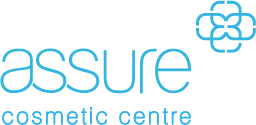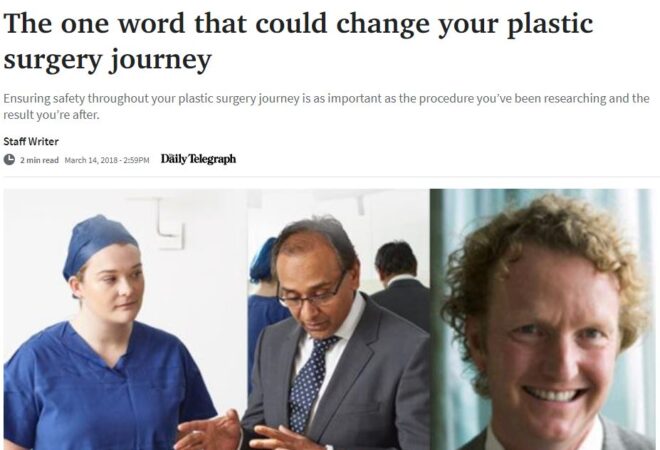The Daily Telegraph | March 2018
Ensuring safety throughout your plastic surgery journey is as important as the procedure you’ve been researching and the result you’re after.
According to Professor Mark Ashton, President of the Australian Society of Plastic Surgeons, there are ways to minimise hazards. While all surgical procedures carry risk, the chance is reduced by consulting a Specialist Plastic Surgeon who is trained, qualified and accredited to perform cosmetic and reconstructive surgery.
“Anyone who has completed a basic medical degree at university can call themselves a cosmetic surgeon and perform cosmetic surgery,” Professor Ashton says. “It’s only people who have done years of training and assessment through the Royal Australasian College of Surgeons (RACS) who are in the position to call themselves a Specialist.”
Beware, he adds – many doctors self-promote as “Cosmetic Surgeons – Plastic” or “Plastic Surgeon Specialists” which confuses the public as they can’t easily tell the difference between those who are and those who are not.
“We’ve uncovered many websites using the word ‘specialist’ when they’re not,” he adds. “That’s why it’s so important for the consumer to do their homework and ensure their surgeon is a member of the ASPS (which can be found on our website).
“So, prior to meeting your surgeon, it’s important to find out whether they have the letters FRACS (Fellows of the Royal Australasian College of Surgeons) after their name. If they don’t have FRACS, they could be a GP. They could be anyone.”
Specialist Plastic Surgeons have extensive surgical education and training including a minimum of 12 years medical and surgical education with at least five years of specialist postgraduate training.
Fellows of the Royal Australasian College of Surgeons must participate in ongoing training and continuing assessment to maintain their qualification and ensure their skills and knowledge are of the highest possible standard.
“Each year, surgeons sign a declaration to say they meet appropriate standards. This is where they are required to provide information about their operating space, ensuring it complies with government-mandated safety standards.”
“Specialist Plastic Surgeons must also comply with the RACS and the Australian Society of Plastic Surgeon’s Codes of Conduct which provide guidance on specific ethics and professional standards of behaviour and include provisions for patient ‘cooling off’ periods.”
“In addition to checking your surgeon’s credentials, make sure you’re up front about all costs associated with your surgery. If the price is too cheap, there’s a reason – it’s a standard ‘consumer buyer beware procedure’. If it’s cheaper than everywhere by a substantial amount, ask where the costs are being cut? It’s important to be aware of what you’re paying and that the premises you’re having the procedure done at are properly accredited facilities subject to audit by the health department. Call a few surgeons and ask these questions and speak to the practice managers, to get a sense of the price range and ensure you feel comfortable with all those involved in your procedure.”
In addition, Professor Mark Ashton says it’s important to use resources that are readily available to you.
“To help consumers determine whether their surgeon meets these standards, it’s best to print out the downloadable list of questions on the ASPS website. Here, they’ll find information regarding risks, costs and care before, during and after surgery, to be used as a tool when meeting with your doctor.”
Read more about why you should choose Assure Cosmetic Centre’s Specialist Plastic Surgeons.
Return to In the Media

